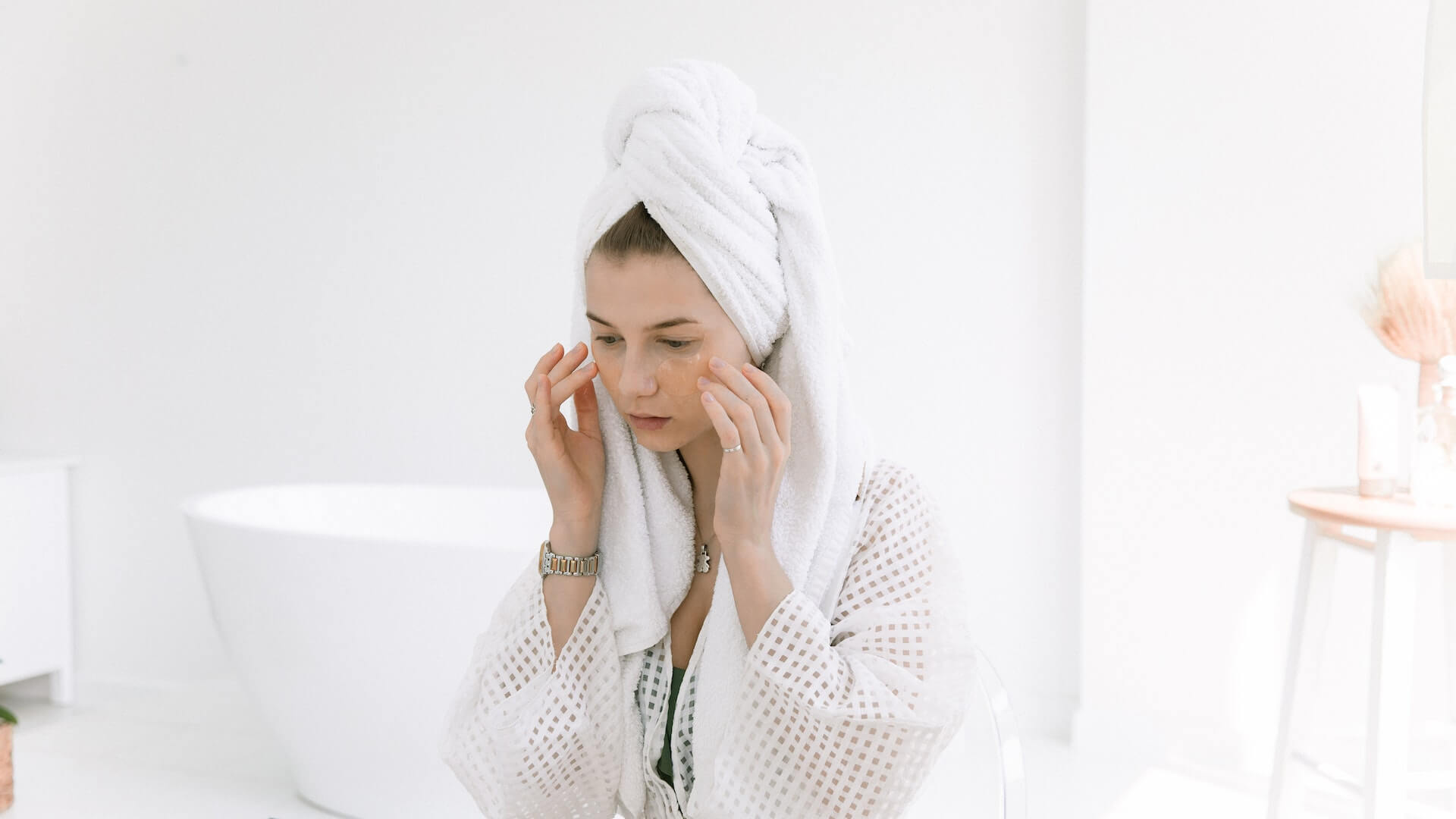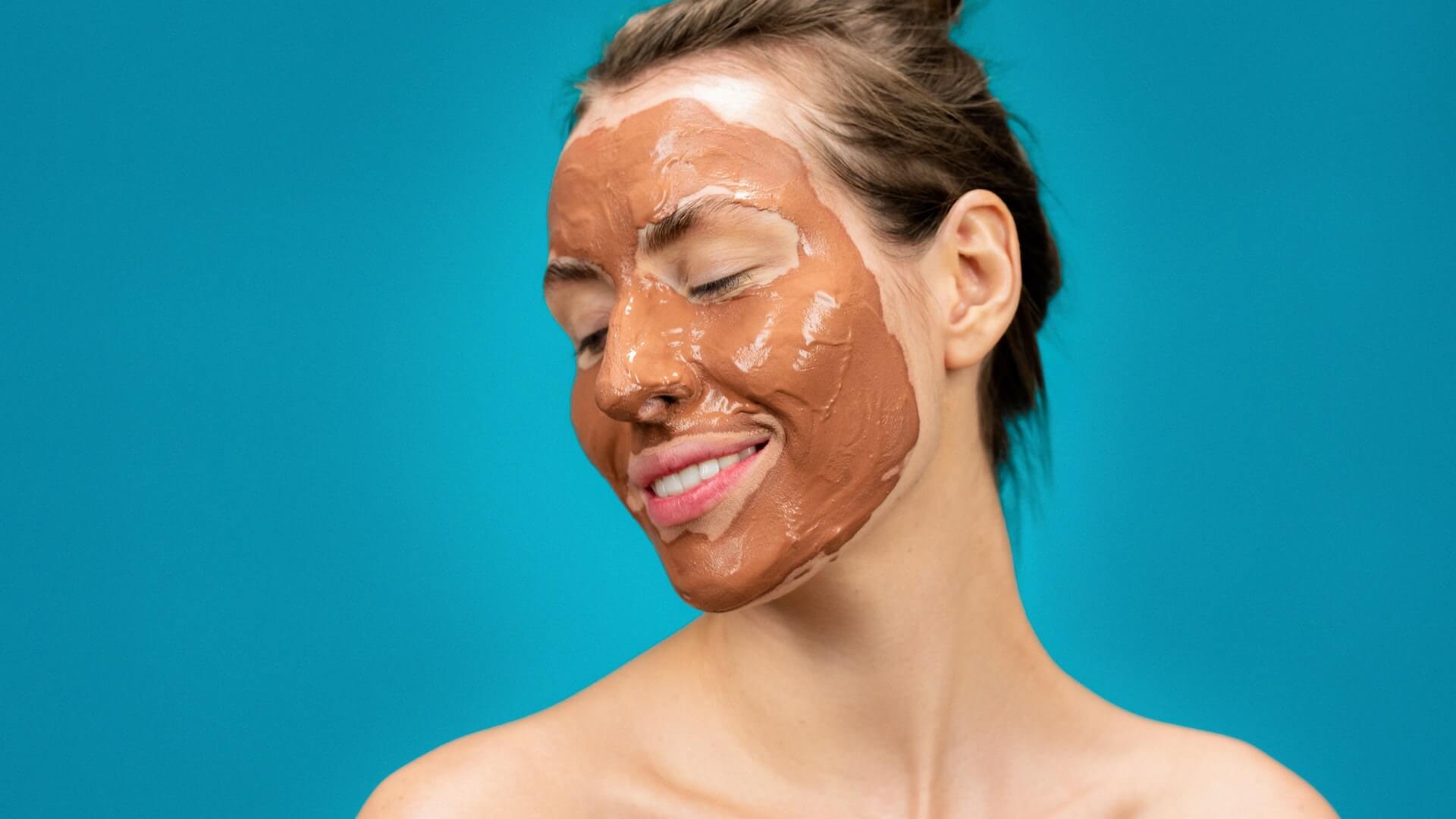Glowing skin is a desirable trait that many of us strive for, but it can sometimes seem like an unattainable goal. We all want healthy, radiant skin that looks and feels good, but it takes time, effort, and the right products to achieve it. Good skin care is essential to maintaining healthy skin. The right products, techniques, and habits can make all the difference. In this post, we’ll share some essential skin care tips that will help you achieve that glowing, healthy skin you’ve always wanted. From understanding your skin type and following a daily routine to staying hydrated, eating healthy, and protecting your skin from the sun, we’ll cover everything you need to know to unlock the secrets to glowing skin. So, let’s dive in!
Understanding the importance of skin care
Understanding the importance of skincare is the first step towards achieving that coveted glowing skin. Your skin is the largest organ of your body and serves as a protective barrier against external elements, such as pollution, UV rays, and harsh weather conditions. It also plays a vital role in regulating body temperature and eliminating toxins.

Skincare goes beyond simply applying products to the skin. It involves nurturing and nourishing your skin from within, as well as adopting a consistent and effective skincare routine. By taking care of your skin, you can prevent various skin issues like acne, dryness, premature aging, and uneven skin tone.
Healthy skin not only enhances your appearance but also boosts your self-confidence. When your skin is well-maintained and radiant, you feel more comfortable in your own skin, which in turn positively impacts other areas of your life.
Moreover, skincare is not solely limited to the face. It extends to other parts of the body as well, including the neck, hands, and feet. Neglecting these areas can lead to dryness, roughness, and signs of aging.
Incorporating a comprehensive skincare routine into your daily life is essential for maintaining healthy, youthful-looking skin. This includes cleansing, exfoliating, moisturizing, and protecting your skin from harmful UV rays. Additionally, understanding your skin type and using products tailored to its specific needs can make a significant difference in achieving optimal skin health.
Determine your skin type
Understanding your skin type is the first step towards achieving a glowing complexion. Each skin type has unique characteristics and requires specific care to maintain its health and radiance.
The four main skin types are oily, dry, combination, and normal. Oily skin tends to produce excess sebum, resulting in a shiny appearance and often leading to issues like acne and enlarged pores. Dry skin, on the other hand, lacks moisture and can feel tight and flaky. Combination skin features both oily and dry areas, with an oily T-zone and drier cheeks. Lastly, normal skin is well-balanced, neither too oily nor too dry, and has a smooth texture.
To determine your skin type, start by cleansing your face thoroughly and leaving it untouched for about an hour. Observe how your skin feels and looks during this time. Oily skin will likely have a greasy appearance and feel slick to the touch. Dry skin may feel tight, rough, or have visible flakiness. Combination skin may show oiliness in the T-zone while the rest of the face feels relatively normal or dry. Normal skin will appear balanced and healthy.
Once you have determined your skin type, you can tailor your skincare routine accordingly. Oily skin benefits from oil-free cleansers and lightweight, non-comedogenic moisturizers. Dry skin requires rich and hydrating products, including gentle cleansers and creamy moisturizers. Combination skin can benefit from a combination of products for oily and dry skin types, focusing on specific areas as needed. Normal skin can generally tolerate a wide range of products, but it still requires regular cleansing and moisturizing.
Cleanse your skin effectively
Cleansing your skin effectively is a crucial step in any skincare routine. It is the foundation upon which the rest of your skincare regimen is built. By properly cleansing your skin, you remove dirt, oil, makeup, and other impurities that can clog your pores and lead to dullness, breakouts, and other skin concerns.

To cleanse your skin effectively, start by choosing a gentle yet effective cleanser that suits your skin type. This could be a gel cleanser, foam cleanser, cream cleanser, or oil cleanser, depending on your personal preference and skin needs. Avoid harsh cleansers that strip your skin of its natural oils, as this can disrupt the skin’s moisture barrier and cause dryness or irritation.
When cleansing, use lukewarm water to wet your face before applying the cleanser. Gently massage the cleanser onto your skin using circular motions, paying attention to areas with more oil or makeup buildup, such as the forehead, nose, and chin. Take your time and be thorough, but avoid scrubbing too vigorously, as this can irritate the skin.
After cleansing, rinse your face thoroughly with water to ensure all traces of cleanser are removed. Pat your skin dry with a clean towel, being careful not to rub or tug at your skin.
It is important to cleanse your skin both morning and evening to remove the accumulation of dirt, sweat, and pollutants that accumulate throughout the day. In the morning, a gentle cleanse helps to refresh your skin and prepare it for the day ahead. In the evening, cleansing removes makeup and impurities, allowing your skin to breathe and regenerate while you sleep.
Exfoliation: The key to removing dead skin cells
Our skin naturally sheds dead cells, but sometimes this process can become sluggish, leading to a dull, lackluster appearance. By incorporating regular exfoliation into your skincare regimen, you can unlock the secrets to glowing skin.
There are various methods of exfoliation to choose from, including physical and chemical exfoliants. Physical exfoliants typically involve the use of gentle scrubs or brushes that physically slough away dead skin cells. These can be beneficial for those with normal to oily skin types, as they help to unclog pores and promote a healthy skin texture.
On the other hand, chemical exfoliants utilize ingredients like alpha-hydroxy acids (AHAs) or beta-hydroxy acids (BHAs) to dissolve the bonds between dead skin cells, allowing them to be easily shed. This method is often preferred by individuals with sensitive or dry skin, as it provides a gentle yet effective exfoliation without the need for physical abrasion.
When incorporating exfoliation into your skincare routine, it’s essential to consider your skin type and choose products that are suitable for you. Over-exfoliating or using harsh exfoliants can lead to skin irritation or damage, so it’s important to follow the recommended guidelines provided by the product manufacturer.
Experts generally recommend exfoliating 1-3 times per week, depending on your skin’s needs and tolerance. However, it’s always best to start with a lower frequency and gradually increase if needed. Remember to be gentle when exfoliating, using light pressure and circular motions to buff away dead skin cells.
After exfoliating, it’s crucial to follow up with a hydrating moisturizer to replenish the skin’s moisture barrier and promote a healthy complexion. This step helps to ensure that your skin remains balanced and protected after the exfoliation process.
Hydrate and moisturize for a healthy glow
Hydration is the key to achieving that coveted healthy glow. It’s not just about drinking enough water, although that is important too. It’s also about hydrating your skin from the outside in.

Start by using a gentle cleanser that won’t strip your skin of its natural oils. Look for ingredients like hyaluronic acid and glycerin, which help to attract and retain moisture in the skin.
Once your skin is cleansed, it’s time to moisturize. Choose a moisturizer that is suitable for your skin type, whether it’s dry, oily, or combination. Look for moisturizers that are lightweight and non-comedogenic, so they won’t clog your pores.
In addition to your regular moisturizer, consider incorporating a hydrating serum or facial oil into your skincare routine. These products are packed with nourishing ingredients that penetrate deep into the skin, providing long-lasting hydration and a radiant glow.
Don’t forget to also hydrate your skin from within. Drink plenty of water throughout the day to keep your skin plump and hydrated. You can also incorporate hydrating foods into your diet, such as watermelon, cucumber, and leafy greens.
Lastly, don’t underestimate the power of a good face mask. Treat yourself to a hydrating mask once or twice a week to give your skin an extra boost of moisture. Look for masks that contain ingredients like aloe vera, honey, or hyaluronic acid for maximum hydration.
The power of serums and treatments
When it comes to achieving glowing skin, serums and treatments can be your secret weapon. These powerful skincare products are formulated with concentrated active ingredients that target specific skin concerns, providing intensive nourishment and rejuvenation.
Serums are lightweight and fast-absorbing, allowing the active ingredients to penetrate deep into the skin’s layers for maximum effectiveness. They address various skincare concerns such as hydration, brightening, anti-aging, and acne. Whether you’re struggling with dryness, dullness, or fine lines, there’s a serum out there that can help.
One popular type of serum is the vitamin C serum, known for its brightening and antioxidant properties. It can help even out skin tone, fade dark spots, and protect the skin from environmental damage. Another favorite is hyaluronic acid serum, which deeply hydrates the skin by attracting and retaining moisture, resulting in plump, supple skin.
Apart from serums, incorporating targeted treatments into your skincare routine can also work wonders for your complexion. Treatments like face masks, chemical peels, and exfoliants can provide deeper exfoliation, remove dead skin cells, unclog pores, and promote cell turnover. They can help refine the skin’s texture, minimize the appearance of pores, and reveal a smoother, more radiant complexion.
It’s important to choose serums and treatments that are suitable for your skin type and concerns. Look for products with high-quality ingredients, free from harsh chemicals and irritants. Additionally, it’s recommended to start slowly, introducing one new product at a time to assess its effects on your skin.
Protect your skin with sunscreen
Sunscreen not only shields your skin from harmful UV rays but also helps prevent premature aging, sunburns, and the development of skin cancer.

When it comes to sunscreen, it’s important to choose a broad-spectrum formula with a high SPF (Sun Protection Factor). Look for a sunscreen that offers both UVA and UVB protection to safeguard your skin against both types of rays. SPF 30 or higher is recommended for adequate protection.
It’s crucial to apply sunscreen generously and evenly to all exposed areas of your skin, including your face, neck, ears, and any other body parts that will be exposed to the sun. Don’t forget commonly overlooked areas such as the back of your hands and the tops of your feet.
For optimal protection, apply sunscreen at least 15 to 30 minutes before sun exposure to allow it to absorb into your skin. Reapply every two hours or more frequently if you’re sweating or swimming. Remember that sunscreen is not just for sunny days; UV rays can still penetrate through clouds and cause damage to your skin.
Nourish your skin from within with a healthy diet
The saying “you are what you eat” couldn’t be more accurate when it comes to your skin. Your skin is a reflection of your overall health, and feeding it with the right nutrients can make a world of difference.
Start by incorporating a variety of fresh fruits and vegetables into your diet. These colorful foods are loaded with antioxidants, vitamins, and minerals that help protect your skin from damage caused by free radicals and promote its overall health. Think vibrant berries, leafy greens, citrus fruits, and colorful bell peppers.
Omega-3 fatty acids found in fatty fish like salmon, sardines, and mackerel are also essential for healthy skin. These healthy fats help maintain the integrity of the skin cell membranes, keeping them hydrated and plump. If you’re not a fan of fish, you can also get your dose of omega-3s from flaxseeds, chia seeds, and walnuts.
Don’t forget to include lean proteins in your diet as well. They provide the building blocks for collagen production, which is crucial for maintaining the elasticity and firmness of your skin. Opt for sources like chicken, turkey, tofu, and legumes.
In addition to these skin-loving foods, make sure to stay hydrated by drinking plenty of water throughout the day. Hydration is key to maintaining skin elasticity and preventing dryness.
Get your beauty sleep: The importance of rest for skin health
Getting enough beauty sleep is not just a cliché; it is a crucial element in maintaining healthy and glowing skin. We often underestimate the power of a good night’s sleep and its impact on our overall well-being, including our skin health.
During sleep, our body goes into repair and rejuvenation mode. This includes repairing damaged cells, replenishing collagen levels, and regulating hormone production. Lack of sleep disrupts this natural process, leading to a variety of skin issues.
One major consequence of sleep deprivation is increased inflammation in the body. This inflammation can manifest on the skin as breakouts, redness, and even premature aging. Additionally, inadequate sleep affects the skin’s moisture levels, leading to dryness and a dull complexion.
Moreover, a lack of sleep can disrupt the delicate balance of hormones in our body. This hormonal imbalance can trigger excess oil production, resulting in acne-prone skin. Additionally, it can also contribute to the breakdown of collagen and elastin, the proteins responsible for maintaining skin’s firmness and elasticity.
On the other hand, quality sleep promotes a healthy complexion. During deep sleep, the body increases blood flow to the skin, delivering essential nutrients and oxygen, resulting in a radiant and nourished appearance. It also helps regulate stress hormones, which can be a major contributor to skin issues like acne and eczema.
To ensure you get your beauty sleep, establish a consistent sleep routine. Aim for 7-9 hours of uninterrupted sleep each night. Create a relaxing bedtime routine, including activities like reading, meditation, or taking a warm bath to signal to your body that it’s time to unwind. Keep your bedroom environment conducive to sleep, with comfortable bedding, a cool temperature, and minimal noise and light disturbances.
Conclusion
Taking care of your skin is not just about appearances; it’s about maintaining a healthy and radiant complexion. By following these tips and integrating them into your skincare routine, you can achieve the glowing skin you desire. Remember, consistency is key, and it’s never too late to start taking care of your skin. Your journey to healthy, glowing skin starts now!



